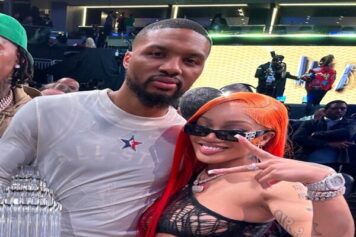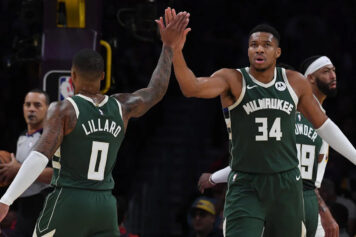In a classic Friday news dump, the NBA sent a memo to all 30 teams last week regarding the Damian Lillard trade request from the Portland Trail Blazers. Lillard, through his agent Aaron Goodwin, has made it clear to the team that he wants out and only wants to be traded to the Miami Heat. Goodwin has reportedly told other teams not to trade for Lillard as he will not play for them. Now the league is cracking down.
“We have advised Goodwin and Lillard that any future comments, made privately to teams or publicly, suggesting Lillard will not fully perform the services called for under his player contract in the event of a trade will subject Lillard to discipline by the NBA. We also have advised the Players Association that any similar comments by players or their agents will be subject to discipline going forward,” the statement read in part.
Free Agency Is A Good Thing
Players have the ability in free agency to choose whatever team they want to play for. That is what Oscar Robertson and many of the early league pioneers fought so fervently for. The ability to work where you want and have the freedom to choose a franchise that meets a player’s individual objectives.
But what players like LeBron James and James Harden, though by different playbooks, have managed to do is continue to have leverage on teams outside of their free agency.
In LeBron’s case he signed a series of 1+1 deals. One year guaranteed with a player option for the second year. That meant the front office of whatever team he was on was ostensibly forced to do his bidding, for fear that he would opt out in year two and leave in free agency. As the best player in the game, he had that ability.
Harden on the other hand would be the picture of malcontent and unhappiness, as he was in Houston and Brooklyn, forcing the team to move him rather than deal with a disgruntled superstar. A player of that magnitude would make life difficult for the organization and the atmosphere around the team unpleasant.
Lillard Gave Away His Leverage By Signing The Extension
Lillard’s situation is different. He has already shown he doesn’t have the appetite to pull a Harden and sulk his way out of town. And unlike LeBron he isn’t on a 1+1 deal. He is under contract for four years and roughly $216 million, which means his only leverage is to threaten that he will withhold his services.
Lillard has had opportunities to force his way out of Portland and hasn’t pulled the trigger until now. Two years ago when he had leverage and could demand his way out, he instead decided to re-up on an extension knowing the team wouldn’t be able to field a true contender around him.
In a fight between billionaire owners and millionaire players I am almost always pro player. But in this case, Lillard chose what he wanted. He wanted the security of long term guaranteed money. He can’t now expect the Blazers to give him up for pennies on the dollar.
The Blazers are under no obligation to move him to Miami. They gave him an extension and he took it. Now he wants out, and they have to recoup as much value as they can.
The league is well within their rights to threaten punishment if Lillard fails to uphold his contractual agreement. So the one-team-only trade demand will not work for players under long term deals. But it won’t stop the players who have 12-18 months remaining from putting pressure on front offices. Losing a star player in free agency for nothing is still a major leverage play and it won’t go away.


